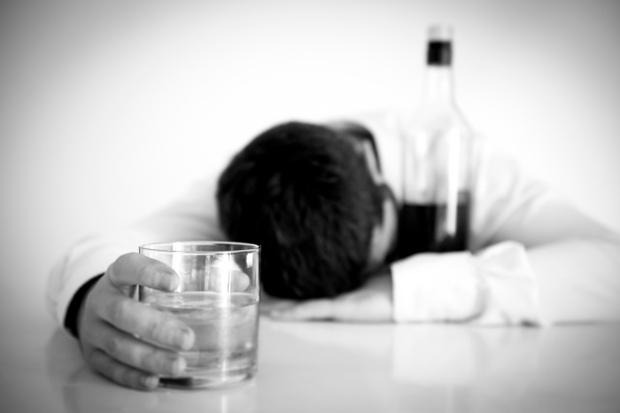Two months ago, I set myself the target of losing 11 pounds in time for the Spectator’s summer party on 1 July. To help achieve that, I swore off alcohol and, had I succeeded, my plan was to start drinking again at the party. I managed the weight loss, but didn’t make it to the party because it clashed with a board meeting of the educational charity I set up five years ago. The upshot is that I haven’t started drinking again and I’m debating whether to remain teetotal in perpetuity.
Temperance has its advantages. I’ve experienced almost no headaches or stomach aches since I gave up the booze, although that may also be connected with my diet. I’ve cut out bread, biscuits, crackers, potatoes, pasta, ice-cream and chocolate and tried to limit myself to about 1,000 calories a day. I’m permanently hungry and often gagging for a drink, but the upside is a sense of moral superiority when seeing my less abstemious friends, particularly when they’re washing down carbohydrates with copious quantities of wine.
I remember hearing Keith Richards say that one of the few compensations of giving up heroin was watching the different emotions flitting across the faces of his former drug buddies when he declined to partake. First they looked shocked, then bereft, then resentful, as if he was passing judgment on them — which, of course, he was. My friends’ reaction, when I tell them I’ve given up drinking, is similar.
Feeling sanctimonious is one of the by-products of self-denial and, pleasurable though it is, should be resisted. In the same way that born-again non-smokers are the most virulent anti-smoking bores, I find myself leaning towards all sorts of authoritarian causes I’ve previously rejected. A sugar tax, for instance. In the past, I’ve dismissed this as a form of thinly disguised puritanism, wanting to penalise people on low incomes for indulging in the simplest of pleasures, but now that I’m abstaining from that pleasure myself I feel a sadistic inclination to deny it to others. Inside every fat man there’s an Andy Burnham struggling to get out and demand a Frosties ban.
At least in the case of sugar my zeal is tempered by the knowledge that I’ll start consuming it again before long. With alcohol, I’m not so sure. I used to have a wonderfully uncomplicated relationship with booze, but I made the mistake of giving it up for a couple of years in 1999 to prove to Caroline, then my fiancé, that I wasn’t an alcoholic.
I started drinking again about an hour after we’d got married and it wasn’t as much fun as I’d expected. I turned into a more self-conscious drinker than before, monitoring how many glasses of wine I’d had, sometimes switching to water for a bit and generally trying to delay the point at which I moved on to hard liquor. Alcohol ceased to be a source of pleasure but one of neurotic self-examination. After 14 years of this tedious drama, it’s a relief to be free of it.
There is a psychological cost, though. The most pleasurable part of drinking is the first glass of the day — that warm sense of euphoria as the alcohol enters your bloodstream, buttressed by the sure knowledge that you’re not going to do any more work. Later in the evening, midway through the second bottle, the self-loathing begins to kick in, climaxing the following morning when your children burst into the bedroom at 6 a.m. It may sound weird, but these swings between peaks and troughs provide my life with a kind of structure; it’s a rhythm I’ve become familiar with. Now, with no cork to pull at 7 p.m., I find myself in one mood all the time, neither euphoric nor depressed. Emotionally, it’s a flat line.
I’m quite enjoying the stability, but I can see myself getting bored with it. I had dinner last week with a man who’s been teetotal since struggling with a bout of cocaine addition when he was young, and I asked him whether this was a problem for him. I was hoping he’d say that, in time, the body’s natural rhythms kick in, but no. ‘I haven’t experienced anything resembling euphoria for over 20 years,’ he said. As he looked at me wistfully, it was obvious that a little part of him still hankered for it.
Am I prepared to pay that price? Probably not.







Comments